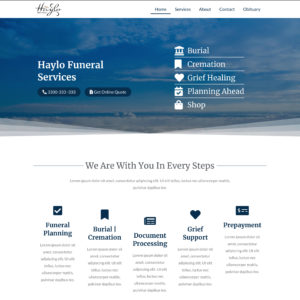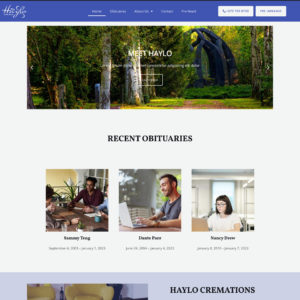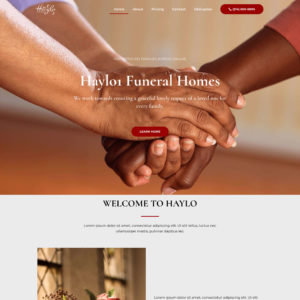Growing a funeral home aftercare program involves a combination of compassion, effective communication, and community engagement. Aftercare programs are essential for providing support to grieving families even after the funeral services have concluded. Here’s a step-by-step guide on how to grow a successful funeral home aftercare program:
About The Author

Our team consists of one of the most advanced marketing experts in the death care industry, Tom Bates, CSE. He has developed an amazing team of developers, programmers, content creatives and with more than 20 years in the death-care and marketing industry, there is no other. Your funeral home marketing could not be in better hands.
- Understand the Importance of Aftercare:
Recognize the significance of providing ongoing support to families as they navigate the grieving process. Understand that aftercare is not just a service but a genuine commitment to helping people cope with loss. - Develop a Comprehensive Plan:
Create a detailed plan outlining the goals, objectives, strategies, and timeline for growing the aftercare program. Identify key team members responsible for executing different aspects of the program. - Training and Sensitivity:
Ensure that your staff members are trained in grief support and are sensitive to the needs of grieving families. Compassionate and empathetic staff are crucial for the success of an aftercare program. - Tailor Services to Individual Needs:
Every family’s needs are unique. Offer a range of aftercare services that can be customized to fit the specific circumstances and preferences of each family. This could include counseling, support groups, workshops, memorial events, and more. - Effective Communication:
Maintain open and ongoing communication with families. Let them know about the available aftercare services during the initial funeral arrangement discussions, and provide resources for them to access later. - Online Resources:
Develop an online platform where families can access resources, articles, and information related to grief and healing. This can include articles, recommended reading lists, and links to local grief support organizations. - Support Groups:
Organize grief support groups where individuals can connect with others who are experiencing similar emotions. These groups can be held virtually or in-person, depending on the preferences of your clients. - Collaborate with Professionals:
Build relationships with grief counselors, therapists, social workers, and other mental health professionals. Collaborate with them to provide additional support for families who need more specialized assistance. - Follow-Up:
Don’t just provide support immediately after the funeral. Regularly check in with families in the weeks and months following the service. This can be done through phone calls, emails, or personalized letters. - Community Engagement:
Partner with local community organizations, hospices, hospitals, and churches to raise awareness about your aftercare program. Attend community events and fairs to showcase your commitment to supporting grieving individuals. - Feedback and Improvement:
Continuously seek feedback from families who have utilized your aftercare services. Use their input to refine and improve the program over time. - Marketing and Promotion:
Promote your aftercare program through your funeral home’s website, social media channels, and other marketing materials. Highlight the benefits of the program and share stories of how it has helped families. - Measure Success:
Define key performance indicators (KPIs) to track the success of your aftercare program, such as the number of families served, feedback ratings, and client testimonials. - Adapt and Evolve:
Be prepared to adapt your aftercare program based on changing trends, needs, and feedback. Stay updated on the latest developments in grief support and adjust your offerings accordingly.
Remember, growing a successful aftercare program takes time and a genuine commitment to providing meaningful support to grieving families. It’s about building trust, fostering healing, and making a positive impact during a difficult time.






